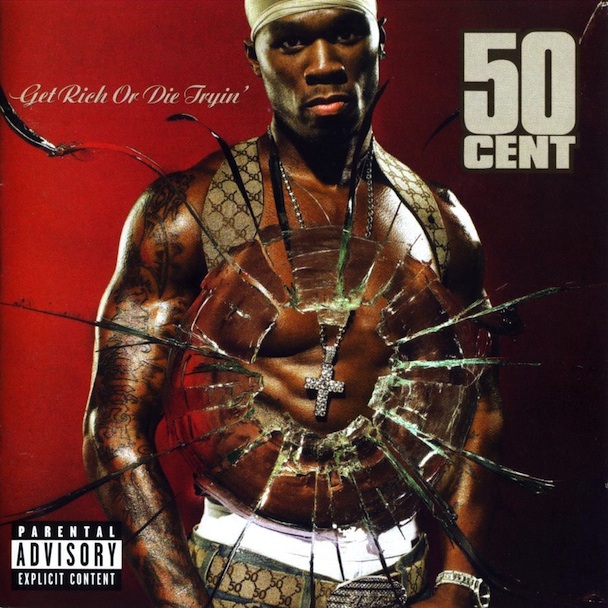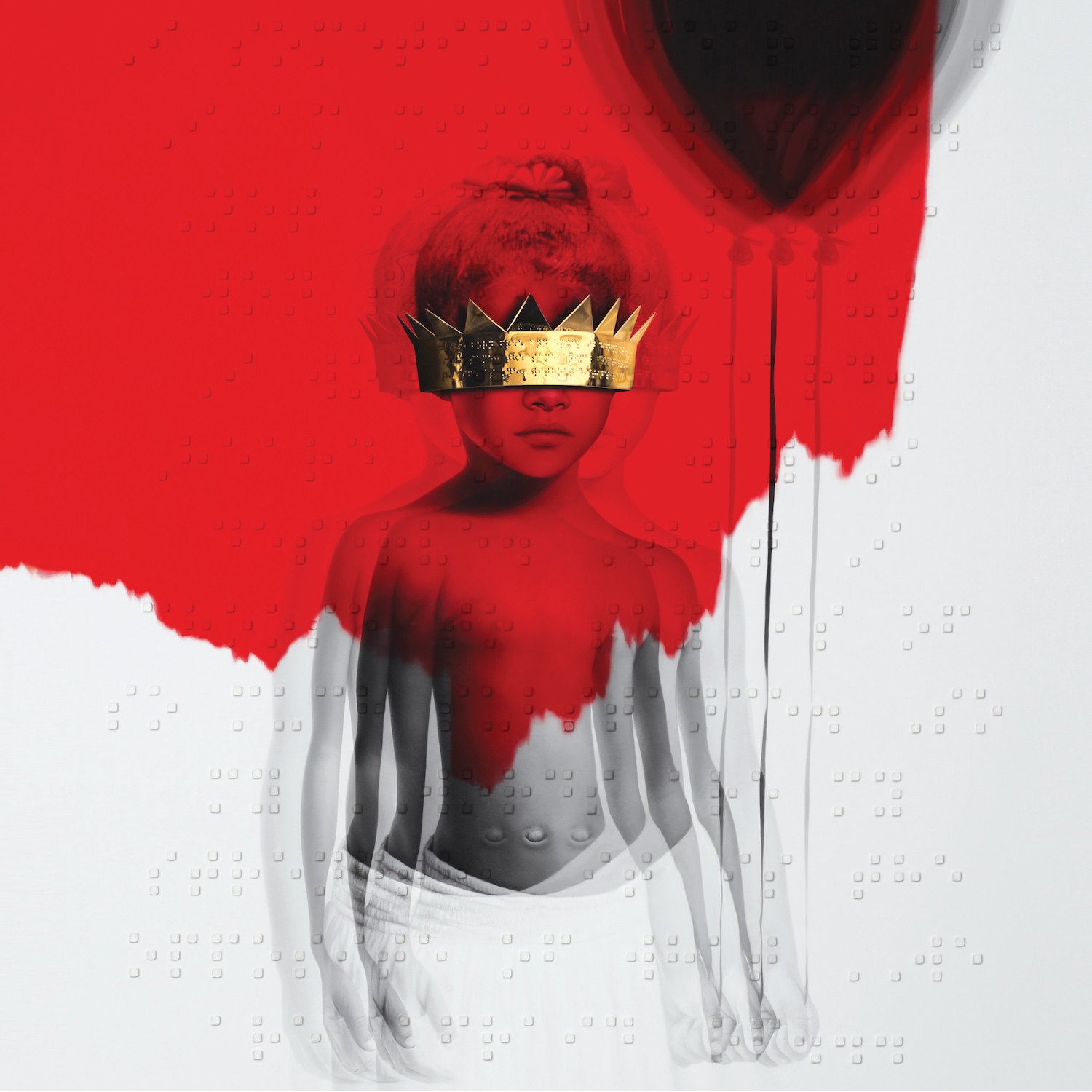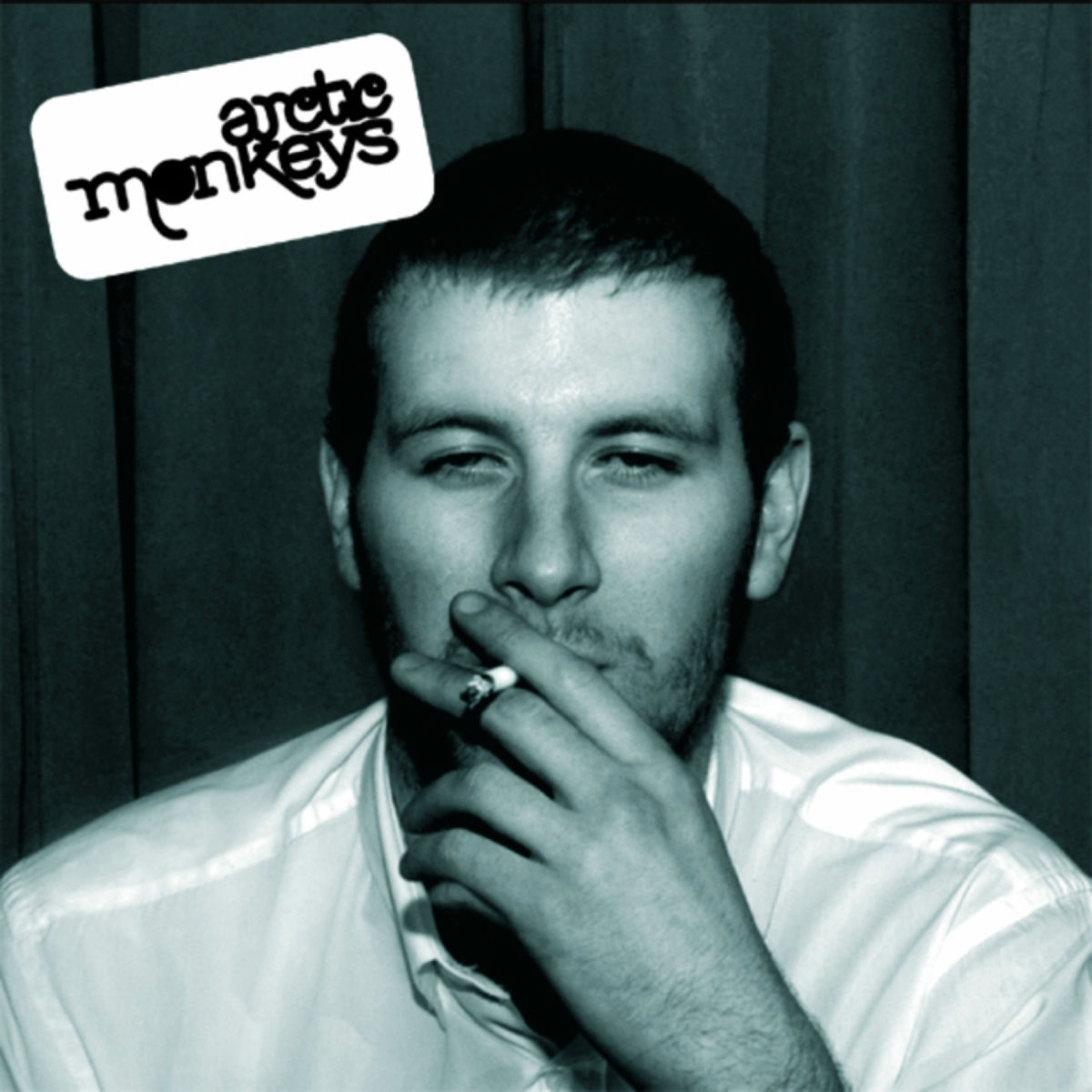It's a strange task: thinking of 50 Cent, at this very moment, as the powerhouse that Get Rich Or Die Tryin' catapulted him into being. A die-hard might harbor a melancholy hope, angry for the squandered opportunities, thinking of her hero as would-be messiah up there with top-of-the-line rappers like Jay-Z and Lil Wayne. But what is so fascinating about 50's fallen star is the dichotomy between his years as a superstar and the awkward place in which he sits right now. His character has had a Scarface-like career arc: A young kid scores a radio hit with the punchline-laden "How To Rob" from the In Too Deep soundtrack, but his original debut album never sees the legal light of day, and he fields eight bullet wounds. His subsequent survival, the cult-following of his heavily bootlegged would-be debut Power Of The Dollar, his signing with Dr. Dre, and the unifying party single "In Da Club" mark his rise to the top. As he sits there, his toothy grin (at-once adorable and sinister) dripped vitriol toward other rappers. His smear campaigns are successful a number of times -- until they aren't, and he's essentially overthrown. Yesterday marked the 10-year-anniversary of Get Rich Or Die Tryin', a manifesto of authenticity that extended an enormous reach between its party cuts and portraits of on-the-street warfare. Let's explore it, along with the turn where it all slipped away from 50.
There are so many songs to talk about on this album. The hits: the sweeping and infectious "In Da Club," the electro-steel drum-laden but in hindsight superfluous "P.I.M.P.," and the Nate Dogg-assisted silly romance cut "21 Questions." "Wanksta" and "If I Can't Do It" were more befitting of 50's sneer and his need to break down his triumphs. "Blood Hound" compels with its video game-y track and his jabbing flow. But it's the first three full tracks on the album -- “What Up Gangsta?,” “Patiently Waiting,” and “Many Men” -- that shine especially bright, each its own pennant of accomplishment. "What Up Gangsta?" will forever knock at parties, and "Waiting" was an opportunity to hear 50 collaborate with Dre's preceding protégé Eminem. Both MCs' successes were hard-won, and Em's icon status was already well-earned. You hear the poles between their respective statures, yet there's a unifying rage and tenacity that stacked 50's credibility as more than just party rapper, as he kept up with one of the most ferocious marquee spitters. But then "Many Men" happens, a banner track for his own authenticity -- a memoir chapter, recounting getting shot in the face, replete with references to the blood-dripping in his eyes and the paranoia it caused. It's the last verse, however, that is one of 50's rawest moments on wax, when he raps:
I ain't gonna spell it out for you motherfuckers all the time
Are you illiterate nigga? You can't read between the lines
In the bible it says, What goes around, comes around
"Hommo" shot me, three weeks later he got shot down
Now it's clear that I'm here for a real reason
Cause he got hit like I got hit, but he ain't fucking breathing
He's referring to how he survived his attempted murder and how his alleged assailant Daryl "Hommo" Baum did not receive the same luck. With such specificity, 50 was aiming to show that not only is his place in the rap game divine, but that telling the truth in your rhymes is an imperative.
Pointing out that other rappers were veritable fakers became part of the mission for 50 Cent and his G-Unit cohorts. Two of the most famous hits were on Ja Rule and Fat Joe, and the former still feels that his career was ruined by 50's afront to his credibility. Fat Joe remains beloved, especially among the DJ Khaled set, but the feud continues and was the inspiration for one of G-Unit's best offerings, the Elephant In The Sand mixtape. Rick Ross became his next victim -- replete with a YouTube cartoon series called Officer Ricky which you can watch below -- and this is the point at which not only did 50 begin to crumble, but so did hip-hop's unshakable need for no-fakery.
At this point, the "Rich Off Cocaine" drug-dealer narrative of Rick Ross's career has been completely dismantled -- and that was accomplished at the hand of 50 Cent, who helped expose Rozay's past as a Dade County corrections officer. There is something to be said of Ross's charisma -- his first single, "Hustlin'," begged for a rhyming dictionary. We had this verified story that he was not who he said he was, and yet the hits persisted. He sharpened his lyrical chops on his third album Deeper Than Rap, but people seemed more interested in him draped in a fur coat, eating linguine in the back of a Maybach. And as the interest in Ross increased -- we all know where his empire is now -- 50's star began to dim.
Something that I've been grappling with for a long time is how to understand the acceptance of Ross's real story. In a recent episode of the Combat Jack Show, guest NY Times pop critic Jon Caramanica described the time ushered in by the fact that no one ran Ross out of rap as "post-truth." How, then, does 50 actually become a mythological character and not just, well, a dinosaur?
------
[videoembed size="full_width" alignment="center"][/videoembed]
(Officer Ricky)
------
50's last-released major-label full-length was appropriately titled Before I Self-Destruct. Most of his newsworthy moments since its release in 2009 have been a cavalcade of head-scratchers -- Twitter meltdowns, a relationship with comedian Chelsea Handler, and a tiff with 2012’s Rookie Of The Year Chief Keef. As labelmates, 50 appeared on "Hate Being Sober" from Keef's Finally Rich. It's in Keef that we see a mirror held up to 50. He's a young kid beaming with potential who was initially stunted by his own circumstances (in this case, gun charges). Upon his return, he went from being a World Star Hip Hop sensation -- which is not unlike the cult of 50's Power Of The Dollar -- and reached another audience, leading him to his major label debut Finally Rich, which received accolades from a diverse audience. We don't know yet if Keef will be the kind of rapper with a Vitamin Water flavor, a condom line, the seemingly now-ubiquitous self-branded headphones -- although Keef has the headphones, too -- and a pair of video games. But like West rapped, riffing on Get Rich's most enormous hit, "50 Cent told me go 'head and switch the style up, and if they hate, then let 'em hate, and watch the money pile up."
[videoembed size="full_width" alignment="center"][/videoembed]
[videoembed size="full_width" alignment="center"][/videoembed]
[videoembed size="full_width" alignment="center"][/videoembed]
[videoembed size="full_width" alignment="center"][/videoembed]






